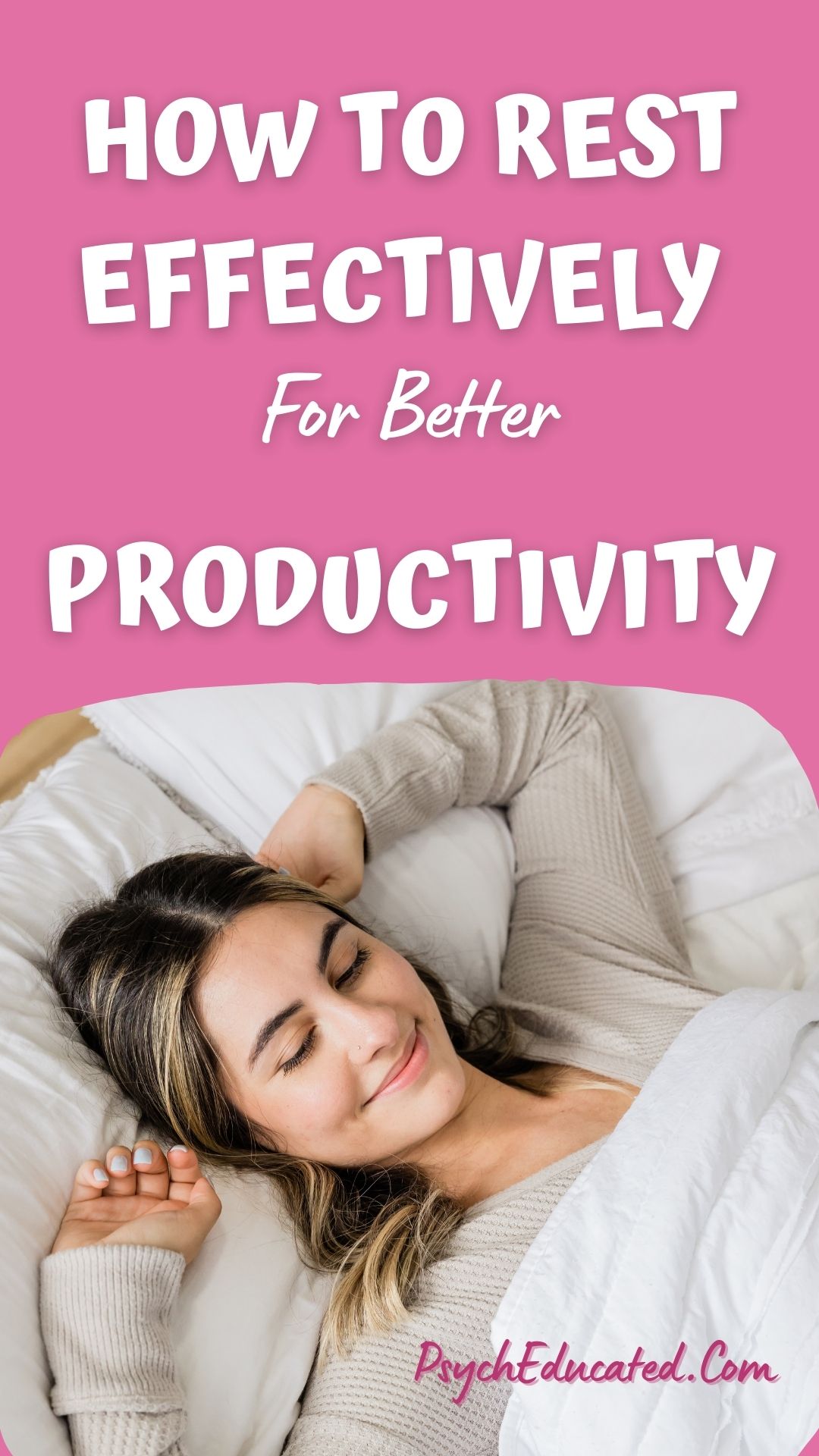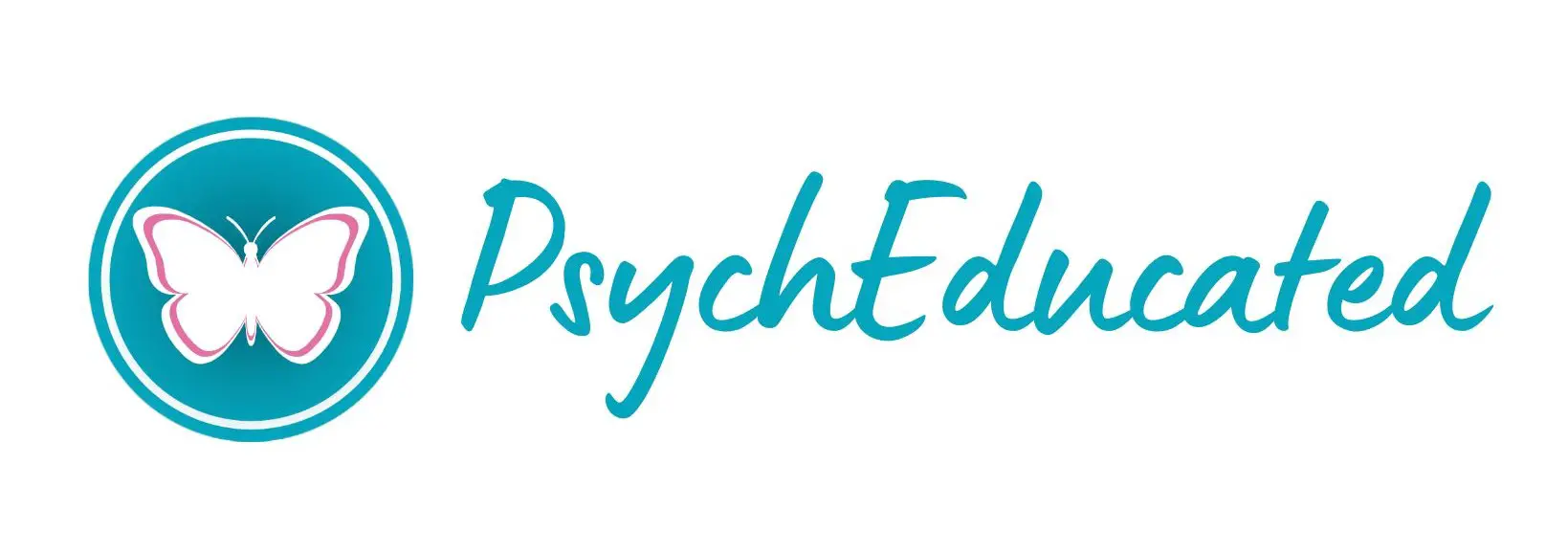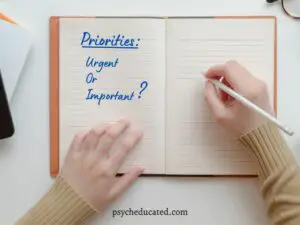Find us on:
How To Rest Effectively For Better Productivity?

Usually, people seeking success start their journey believing that the key to achieving greatness is to work harder and longer hours than anyone else. However, they soon realize that they’re feeling burned out, exhausted, and lacking the energy to complete even the most basic tasks.
What they forget is that like how a car needs fuel to run, the body needs rest to perform at its best.
It doesn’t mean anything if we work harder and longer than everyone else if we are not efficient, and that’s why rest is important for productivity. Actually, we need both to succeed: work hard and rest well.
There is virtue in work, and there is virtue in rest. Use both and overlook neither.
Alan Cohen
Rest is the time when your mind and body rejuvenate and recharge for the next day. But how can you rest effectively for maximum productivity?
Rest is productive
Rest is productive! Can we even say that?
Sometimes we think that if we rest, we’ll have less time to complete our important tasks, whereas rest helps us complete our tasks faster and more efficiently.
Of course, rest is productive! If you’re not well rested, your productivity won’t be at its best.
One study found that taking planned, uninterrupted time off increases productivity while also improving work quality and efficiency.
Rest, including sleep and its other forms (we’ll talk about them next), can be productive in several ways:
Appropriate rest can improve cognitive function by allowing the brain to recharge. It can enhance concentration, memory, and decision-making abilities.
Rest can improve physical health. A good break can reduce stress, increase energy levels, and improve overall well-being.
Taking breaks and doing fun activities can boost creativity and help find new ideas and solutions.
Rest can also prevent burnout and improve work performance and motivation.
Different types of rest that are essential for better productivity
To know how to rest effectively for better productivity, we need to keep in mind that rest and sleep are not the same. We can have enough sleep but still not feel rested.
Saundra Dalton-Smith, author of the book “Sacred Rest: Recover Your Life, Renew Your Energy, Restore Your Sanity.” states in her TEDxTalk that sleep is not the only form of rest that we need but there are 7 types of rest that every person requires.
Because the energy required for activities is not only physical, it stands to reason that we need different types of rest to restore every type of energy.
1. Mental rest
People who are irritable, forgetful, and have trouble concentrating due to work stress are lacking mental rest.
Dr. Saundra recommends taking short breaks every two hours at work to slow down and calm the mind, as well as writing down unpleasant thoughts before bed to improve mental rest.
2. Sensory rest
Nowadays, our senses are constantly bombarded with stimuli: bright screens everywhere, and constant background noise. We even risk having sensory overload syndrome.
The solution can be very simple. Just close your eyes for a moment whenever you have a chance, and at the end of your day, unplug intentionally from all of your devices.
3. Creative rest
This kind of rest is especially important for people whose jobs require having innovative ideas or engage in creative activities, like writers, artists and designers.
You can have some creative rest by appreciating the beauty of nature outside of your workplace, or by creating your own inspiring corner with pictures and things you love.

4. Emotional rest
The person who needs emotional rest is the one who doesn’t know how to say “no” and always feels unappreciated and taken advantage of.
To have emotional rest, you need to free yourself from the exhaustion of people-pleasing behavior and have the time and space to freely express yourself.
5. Social rest
The truth is that some of our relationships drain us. If we are surrounded with negative, depressed people we will end up feeling like them.
If you want to experience more social rest, surround yourself with positive people and cut off toxic relationships.
6. Spiritual rest
Dr. Saundra Dalton-Smith says that achieving spiritual rest means establishing a connection beyond the physical and the mental, and experiencing a profound sense of belonging, love, acceptance, and purpose.
To obtain this, we need to participate in activities that are beyond ourselves and incorporate practices such as prayer, meditation, or community involvement into our daily routine.
7. Physical rest
A physical reset can be passive or active.
Passive physical rest includes sleeping and napping, whereas active physical rest includes restorative exercises like yoga, stretching, and massage therapy.
How to rest effectively and maximize the benefits of sleep
After explaining the 7 types of rest I hope that you’ll pay more attention to your specific needs and consider restauring your energy and increase productivity with the most effective type of rest.
Sleeping alone is extremely important for acquiring the rest our bodies need to stay productive during the day, but we often don’t rest efficiently due to a number of factors.
To make sleep the most efficient and beneficial for our minds and bodies, make sure to follow the next tips:
1. Have enough sleep
For our bodies to keep functioning correctly, we need a certain amount of sleep every day.
The national sleep foundation recommends 7 to 9 hours of sleep for adults. Children and teenagers may need more sleep, while older adults may need less.
It’s important to pay attention to your body signals and how you feel in general and make adjustments as necessary to ensure that you’re getting adequate rest.
2. Sleep in a dark room
Melatonin, a hormone that regulates sleep, is released when your biological clock indicates that it is night and dark.
Melatonin levels naturally increase in the evening and decline in the morning, helping to regulate the sleep-wake cycle.
When the room is dark, your body is able to produce more melatonin, which makes it easier to fall and stay asleep.
But when there is light exposure, it can interfere with melatonin production—especially the light coming from electronic devices, which leads us to the following tip:
3. Reduce screen time before bed
According to Sleep Foundation, the blue light on screens affects your sleep significantly.
- It inhibits the release of melatonin and makes it harder to fall asleep.
- It disrupts the circadian rhythm by tricking our brains into thinking it’s daytime.
- The light and distractions from screens can interfere with sleep quality and lead to restless, unrefreshing sleep.
Therefore, reducing screen time before bed is important for maintaining good sleep quality. It is recommended to avoid screens for at least an hour before bedtime and create a relaxing pre-sleep routine.
4. Avoid caffeine before bedtime
Caffeine is a great way to stay alert and sharp while working.
I personally love my coffee time.
Although this can be useful during the day, it is counterproductive to consume caffeine close to bedtime. It can make it harder to fall asleep, and decrease the quality of sleep
It is generally recommended to avoid caffeine consumption for at least six hours before bedtime to help ensure a good night’s sleep.
5. Take naps during the day
Another way to rest your body is to take short naps during the day.
Napping can be a quick way to make you feel energized, refreshed, and alert, which can help improve your overall productivity.
Conclusion
If you want to keep being productive, you need to know how to rest effectively.
Rest is what allows our bodies and minds to recharge, so depending on the energy that you’re using, you need an adequate type of rest: physical, mental, emotional, creative, social, spiritual, or sensory rest.
Taking time to rest can be as simple as scheduling breaks during the day, eliminating toxicity from your daily life, or sticking to appropriate sleep practices.
It is up to each individual to prioritize rest and make it a routine.
I encourage you (and myself) to make rest a priority in your daily routines.
Better rest means improved productivity and overall well-being.
Pin me!





